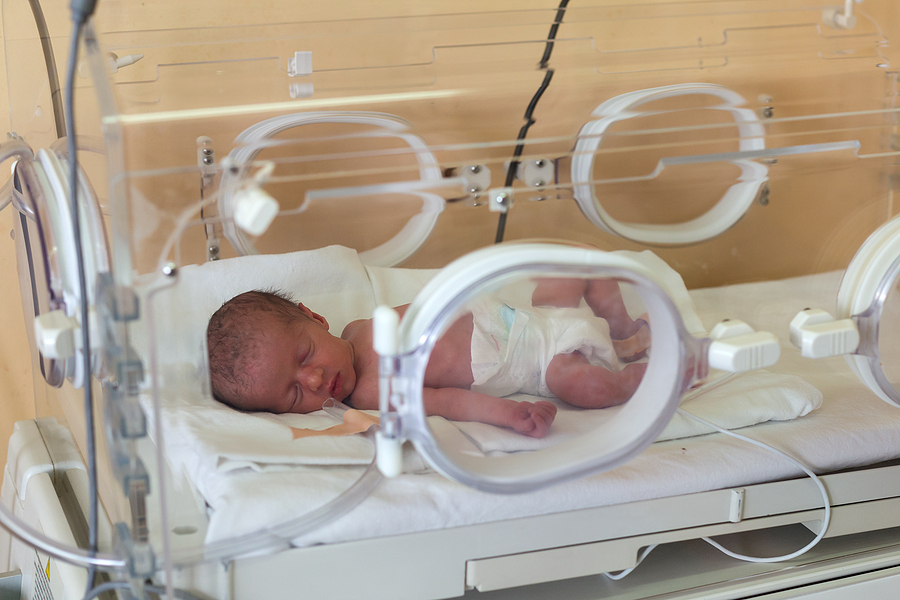Powdered Infant Formulas Linked to Salmonella and Cronobacter
Urgent Health Alert: Recall of powder formulas, including Similac, Alimentum and EleCare due to contamination with Salmonella and Cronobacter. Salmonella and Cronobacter can lead to hospitalization or death for compromised individuals including infants.
FDA investigation reports of Salmonella and Cronobacter in Infant Baby Powder Formula
The FDA is investigating complaints of four infant illnesses from three states. All four cases related to these complaints were hospitalized and Cronobacter may have contributed to a death in one case.
The FDA initiated an onsite inspection at the facility. Findings to date include several positive Cronobacter sakazakii results from environmental samples taken by the FDA and adverse inspectional observations by the FDA investigators. A review of the firm’s internal records also indicate environmental contamination with Cronobacter sakazakii and the firm’s destruction of product due to the presence of Cronobacter.
Abbott Laboratories Recall
Abbott Laboratories has announced it is recalling powdered baby formulas, including Similac, made at a Michigan facility after four consumers complained about bacterial infections in infants who consumed the products. The complaints were related to Cronobacter sakazakii bacteria or Salmonella Newport and Abbott will also recall its Alimentum and EleCare baby formulas manufactured at the same plant in Sturgis.
Recalled Powdered Infant Formula Details
The FDA is advising consumers not to use Similac, Alimentum, or EleCare powdered infant formulas if:
• The first two digits of the code are 22 through 37; and
• The code on the container contains K8, SH or Z2; and
• The expiration date is 4-1-2022 (APR 2022) or later.
What should I do if my baby was fed the recalled formula?
If your infant may have been given the recalled formula or is experiencing symptoms related to Cronobacter or Salmonella infection, such as poor feeding, irritability, temperature changes, jaundice, grunting breaths, abnormal movements, lethargy, rash, or blood in the urine or stool; contact your health care provider to report their symptoms and receive immediate care.
What is Cronobacter?
Cronobacter, which used to be called Enterobacter sakazakii, is a germ that can live in very dry places. Cronobacter has been found in dry foods, like powdered infant formula, powdered milk, herbal teas, and starches.
It has also been found in sewer water. Cronobacter infections are often very serious for babies; they can die. Cronobacter infection can also be very serious for older people and people whose bodies have trouble fighting germs, like people with HIV, organ transplants, or cancer.
Cronobacter bacteria can cause severe, life-threatening infections (sepsis) or meningitis (an inflammation of the membranes that protect the brain and spine). Symptoms of sepsis and meningitis may include poor feeding, irritability, temperature changes, jaundice (yellow skin and whites of the eyes), grunting breaths, and abnormal movements. Cronobacter infection may also cause bowel damage and may spread through the blood to other parts of the body.
Symptoms of Cronobacter
• Sepsis or Meningitis
• Poor feeding
• Irritability
• Temperature changes
• Jaundice (yellow skin and whites of the eyes)
• Grunting breaths
• Abnormal movements

What is Salmonella?
"The CDC says that Cronobacter illness is very rare, but it is often deadly in young infants, and typically the agency records two to four illnesses in infants each year. The bacteria can cause severe blood infections (sepsis) or meningitis (an inflammation of the membranes that protect the brain and spine)."
What is Salmonella?
Salmonella infection (salmonellosis) is a common bacterial disease that affects the intestinal tract. Salmonella bacteria typically live in animal and human intestines and are shed through feces. Humans become infected most frequently through contaminated water or food.
Typically, people with salmonella infection have no symptoms. Others develop diarrhea, fever and abdominal cramps within eight to 72 hours. Most healthy people recover within a few days without specific treatment.
In some cases, the diarrhea associated with salmonella infection can be so dehydrating as to require prompt medical attention. Life-threatening complications also may develop if the infection spreads beyond your intestines. Your risk of acquiring salmonella infection is higher if you travel to countries with poor sanitation.
Salmonella Symptoms
• Nausea
• Vomiting
• Abdominal cramps
• Diarrhea
• Fever
• Chills
• Headache
• Blood in the stool
Signs and symptoms of salmonella infection generally last two to seven days. Diarrhea may last up to 10 days, although it may take several months before bowels return to normal.
Infant Formulas Linked to Hospitalization and Death from Salmonella and Cronobacter. Compensation may be available for victims.
Find out if you qualify now.
Find Out MoreConsumer Safety Watch offers safety advocate services and attorney referral services for patients throughout the United States including the states of Alabama, Alaska, Arizona, Arkansas, California, Colorado, Connecticut, Delaware, Florida, Georgia, Hawaii, Idaho, Illinois, Indiana, Iowa, Kansas, Kentucky, Louisiana, Maine, Maryland, Massachusetts, Michigan, Minnesota, Mississippi, Missouri, Montana, Nebraska, Nevada, New Hampshire, New Jersey, New Mexico, New York, North Carolina, North Dakota, Ohio, Oklahoma, Oregon, Pennsylvania, Rhode Island, South Carolina, South Dakota, Tennessee, Texas, Utah, Vermont, Virginia, Washington, West Virginia, Wisconsin and Wyoming.
Consumer Safety Watch offers consumer safety advocate services or can help you find an attorney throughout the United States including the following cities: Albuquerque, NM; Arlington, TX; Atlanta, GA; Austin, TX; Baltimore, MD; Boston, MA; Charlotte, NC; Chicago, IL; Cleveland, OH; Colorado Springs, CO; Columbus, OH; Dallas, TX; Denver, CO; Detroit, MI; Fresno, CA; Fort Worth, TX; Indianapolis, IN; Honolulu, HI; Houston, TX; Jacksonville, FL; Kansas City, KS; Kansas City, MO; Las Vegas, NV; Long Beach, CA; Los Angeles, CA; Louisville, KY; Memphis, TN; Mesa, AZ; Miami, FL; Miami, OH; Milwaukee, WI; Minneapolis, MN; Nashville, TN; New York City, NY; Oakland, CA; Oklahoma City, OK; Omaha, NE; Philadelphia, PA; Phoenix, AZ; Pittsburgh, PA; Portland, OR; Sacramento, CA; San Antonio, Tx; San Diego, CA; San Francisco, CA; San Jose, CA; Seattle, WA; St. Louis, MO; Tampa, FL; Tucson, AZ; Tulsa, Virginia Beach, VA; Washington, DC; Wichita, KS.
This website is not affiliated with any pharmaceutical or medical device company or any trademarked product. Results are not guaranteed. This website provides a free matching service and is not responsible for information or services from third party providers. Consumer Safety Watch is not a law firm. Every case is different and services available can vary.


